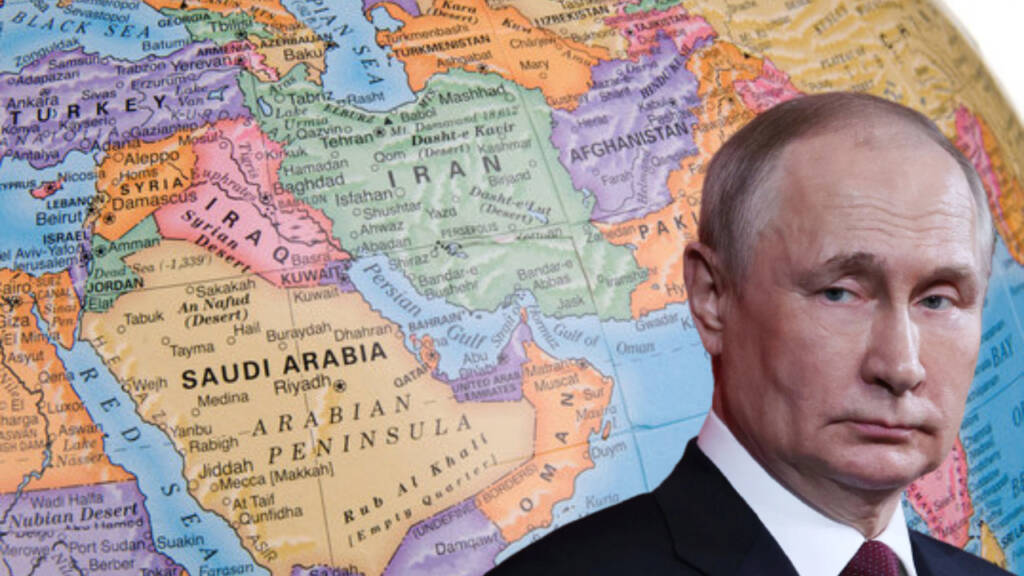When the West berates Russia, it does so with fervor, and why wouldn’t it? Russia is methodically eradicating Western influence from every corner of the globe, the latest one being the Middle East.
March 2023 will go down as a month to remember in the Middle East. The two major clans of the area, the Sauds, and the Iranians, finally came together and challenged Western hegemony in the region. The longstanding tension between Saudi Arabia and Iran had been a source of conflict and instability in the Middle East, with each vying for regional dominance and religious influence.
However, these roots were finally cut, and a new beacon of friendship sprouted. An important turning point in the turbulent relationship between the two regional powers can be seen in the recent Saudi-Iran agreement. This deliberate step towards opening diplomatic channels, after the formal severing of ties in 2016, cannot be disregarded.
This development represents a much-needed diplomatic triumph, as the hostility between these rivals has significantly impacted the Middle East. This reconciliation is a ray of hope for a better future for nations like Yemen and Syria, which have been devastated by Riyadh-Tehran proxy wars. While the agreement also heralded a shift in the balance of power in the world, with the East emerging as a possible rival to the West-led system.
As expected, the Western world is baffled and amused by the settlements happening. However, the West has again started punching the bag, which it often beats for its failure. Damn the Russian propaganda war.
Russia did it again!
According to a recent media report by Politico, Russia is currently waging an influential war in the Middle East. Apparently, Russian messaging is receiving a much better response in the Arabic-speaking world.
Russian state-owned media outlets, RT Arabic and Sputnik Arabic have established themselves as veritable fountains of real local news in the Middle East. However, the sister publications of RT and Sputnik in the West never attained comparable levels of legitimacy and with the start of the war, they decided to shut down operations due to “unexpected business interruptions.”
This is what happened to RT America after the channel was removed by streaming giant Roku and satellite TV provider DirecTV in 2022. Additionally, RT was outrightly banned in Britain. Throughout the Ukraine crisis, Russia run media had unrestricted access to the airwaves in the Middle East.
Read More: Ukrainian soldiers have stopped fighting and have started praising Russian Su-35 fighter jets
Most of the reports during those times laid emphasis on the nefarious intentions of the EU and the U.S., rather than on Russia’s blockade and subsequent refusal to cooperate. Russia’s RT and Sputnik were solely responsible for spreading the word that Ukraine had constructed secret laboratories to develop biological weaponry.
The unparalleled potency of social media has hastened the ability to sustain stories like these, engendering their own momentum, much like a boulder tumbling down a mountainside. These stories have gained mass acceptance in the Arabic world, and as a result, Western influence is declining in the Middle East.
Same story, different characters!
Russian media outlets have succeeded in instilling a sense of mistrust and hostility towards Western institutions through a carefully crafted messaging strategy, causing many people to doubt the reliability of mainstream Western news sources. A similar saga has taken place long before the Ukraine crisis started.
Two crucial regions of the globe, South America and Africa, have already decided to leave the Western sphere en masse, and surprisingly, Russian machinery has been active there too. Russian state-run media outlets, RT and Sputnik, have made significant progress in their attempts to sway the continent of Africa. Moscow has been able to weaken Western influence in the region by influencing public opinion in a number of African nations through their extensive propaganda apparatus. The Kremlin’s keen awareness of the African media environment is responsible for the success of this strategy.
Read More: Russian media breaks all popularity records in the West
This has been especially evident in countries like Ethiopia, where Russian emphasis on the Ethiopian government as a victim of Western-backed aggression has found resonance among the population. In Zimbabwe, RT and Sputnik have also been instrumental in spreading pro-Russian messaging, depicting Moscow as a protector of African sovereignty against Western interference.
Similar tales have emerged from the alluring countries of Latin America. In Venezuela, the Russian presentation of events has become widely accepted by the populace. The state-run VTV broadcaster in Venezuela has been instrumental in spreading Russia’s word after the invasion of Ukraine by drawing parallels to actions the US has recently taken.
A Blame Game!
For too long, the West has relied on bullying tactics, resorting to arm-twisting and coercion to achieve its goals with nations like Syria, Iran, and Saudi Arabia. But those days are over. The world has changed, and the West must adapt to survive.
Russia’s role in this process cannot be denied, but it is time for the West to stop crying over spilled milk. Instead, it must take a hard look at its actions and ask whether it is truly living up to the values it claims to hold dear. It is easy to blame Russia and its propaganda machine for the West’s decreasing influence on the global stage. But the reality is far more complex. The truth is that the West has been its own worst enemy, failing to live up to its ideals and losing the trust of nations it once considered allies.
Read More: Russian threat knocks at the gates of Canada
The road ahead will be long and difficult, but the West must find a way to regain the world’s trust if it hopes to maintain its position of power and influence. Only by embracing a more collaborative and cooperative approach can the West hope to build a better future for all. Otherwise, they must say Sayonara to the top chair.
